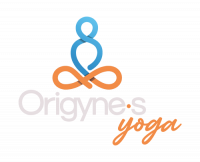3 good reasons to use Non-Violent Communication (NVC)

As you may have noticed over the past few years, building a seasonal team, training it, stimulating it and seeing it through to the end of the season without a hitch is quite a feat.
Certain things left unsaid, certain words expressed too spontaneously in the heat of the moment, can drive a wedge between you and your teams and insidiously lead to the moral or practical resignation of your employees, leaving you and the rest of the team in the lurch.
You wonder what to do and, above all, how to stop this infernal pattern that seems to be repeating itself?
The non-violent communication (CNV) is undoubtedly an avenue to explore to improve relations within your company.
This method aims to (re)create relationships between team members based on values that are certainly close to those of your company: empathy, compassion, harmonious cooperation, respect for self and others.
“That’s all well and good, but we don’t have the time!”
That’s probably what you are thinking, but it is a shame because taking care of your team is obviously taking care of your business.
“Seasons are getting shorter and budgets are too tight to train seasonal workers that we are not sure to see again next year”
Start by taking care of your Heads of Department, that close-knit team that is present throughout the year and which is the first to suffer from the lack of staff in its ranks.
Non-violent communication thus makes it possible to establish stable and serene relations for the manager, but also between the members of the same team. By opting for NVC, you can establish a management style based on trust, exchange and benevolence.
This will have many implications for your team and the company.

First good reason: to make dialogue easy
Empathy is the key to NVC, in order to put yourself in the place of one of your collaborators, you must first know yourself, be aware of what you are doing.
The hotel and restaurant industry is a stressful environment, with rushes where it is essential to be able to manage one’s emotions and reactions in order to take the necessary distance for the smooth running of the services.
It is essential to control your emotions while being able to express them. Rather than reacting to a complicated situation, non-violent communication will help you to observe the situation, express your emotions, identify your needs and formulate your request.
This method invites you to adopt a constructive and positive attitude, even in a tense context. Rather than spending your energy on grumbling, NVC allows you to work towards solving the problem and moving your team forward.
The team can then freely express their feelings, needs and wishes. By adopting non-violent communication in your company, you allow the expression of emotions at work. As a manager, this allows you to get to know your employees better, to understand them better and to consider solutions to meet their needs. NVC will also allow you to enhance the emotional intelligence of your team.
By accepting to reveal your emotions, you humanise the relationship with your team on the basis of mutual trust.
With NVC, there is no need to hide a difference of opinion or a disagreement because you have the keys to express your ideas without appearing aggressive. You can easily express a difference of opinion and open a discussion on a subject that is important to you. You can express dissatisfaction, point out a malfunction or suggest a way forward. The more you share your emotions and needs with your colleagues, the more weight the request will have.
Your point of view, which is not aggressive and is justified by your feelings and perception, can thus be accepted by your team. In this context, the idea is not to be in frontal opposition – manager on one side, employees on the other – but to make an observation in order to generate change.
You can also encourage your teams to use this method of communication to brainstorm and allow everyone to make their voices heard.
Second good reason: to boost the performance of your team
Non-violent communication will be favourable to co-construction and collaborative management. Under your leadership, your team will be more motivated and more efficient thanks to your listening and valuing.
By being based on listening, benevolence and respect for others, the atmosphere at work will be better. As a manager, you set the tone. If you use NVC in your team, your colleagues will do the same. The beneficial effects of the method can be felt in the quality of working relationships within your team and the company.
Beyond its impact on the group, NVC allows each person to express their feelings and professional wishes… A gold mine when you are a manager, particularly when considering the professional development and career paths of each employee. As a manager, your aim will be all the more accurate if you are aware of the person’s deepest motivations. You will also be able to support them better if you identify weak signals regarding their commitment, motivation or confidence. You will then participate fully in the professional development of the members of your team.
Third good reason: to strengthen team cohesion
For NVC to work, it is essential to create a climate of benevolence. This gives each employee the confidence to express his or her feelings without being judged. On the other hand, empathy and listening, which are key elements of NVC, help to develop bonds between employees. By getting to know each other better, the members of your team are more united, which strengthens team cohesion and builds long-term loyalty.
So that’s the final goal! Here are some tips to help you decide:




- choose the off-season and aim for your Heads of Department to return from holiday so that they are fresh and ready to take on a new project
- plan a full day or two mornings so that you are not tied up for too long (we know that things have to keep moving forward in parallel with this training)
- organise an original lunch during this day or these two mornings in order to share a moment of conviviality out of your habits: a Grazing table with the theme of the season because gourmandise goes first through the eyes, a picnic on the heights of the village because the fresh air and the beautiful landscapes are sources of inspiration, a BBQ at the edge of the lake to relax fully in the middle of nature, a gourmet lunch in a restaurant of the village to change of decoration and to discover the gastronomy of your neighbours
- let us suggest an outdoor activity to strengthen the (new) bonds between you and your team. If you opt for teambuilding, the trainer can even join you and give a report on what she has observed during this new team-building activity
- Repeat the operation at least twice a year: once between seasons so that you can all evolve together in NVC, strengthen this new precious bond that unites you, build loyalty among your colleagues, set an annual meeting that allows you to put things right and leave boosted for the new season that is approaching!
The trainers we work with are certified and qualified in their speciality, some are even Qualiopi certified, which will enable you to have these training modules paid for by your OPCO if necessary.
There are different ways of approaching non-violent communication, and it can even complement other modules such as stress management, sales training, public speaking, etc.
Let’s talk to you soon to study your project!
Flore, Jenn & Nayel
Sources : Cadremploi “Les 12 vertus de la communication non-violente en entreprise”

